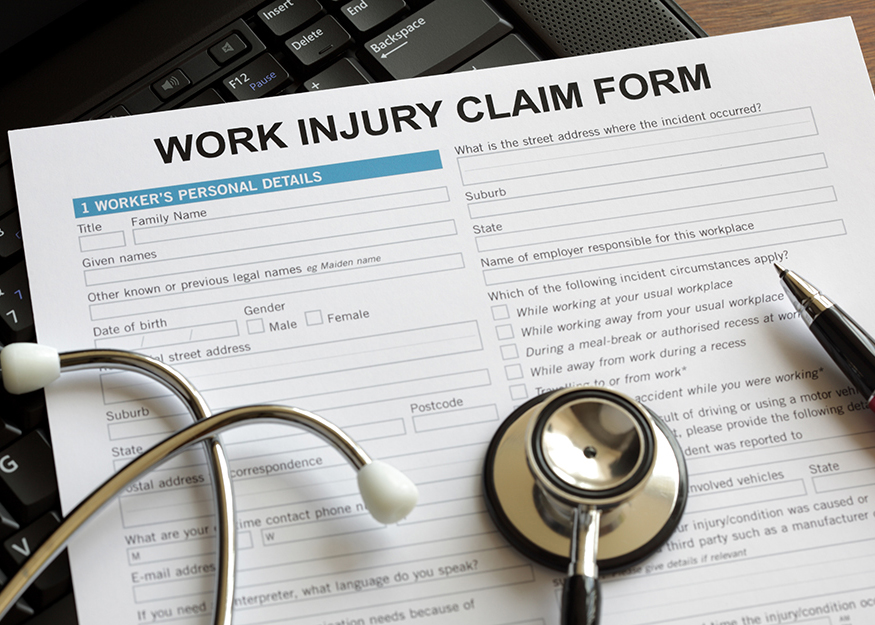It’s normal when you have a workers’ compensation claim to be a little suspicious about the process, especially when you are sent to be examined by a doctor chosen by your employer or the insurance company. It typically begs the question, Can you Choose your own Workers’ Comp Doctor in California?
In some states, workers who have been injured on the job are entitled to choose their own workers’ comp doctor. Other states require workers to choose from a network of medical providers.
In California, workers’ compensation law requires that the worker first be examined by a doctor of the employer’s choosing if your employer has a medical provider network set up by the employer’s insurance company. Usually this medical provider network will have a mix of doctors who are general practitioners and doctors who specialize in work-related injuries.
Requirements
If you predesignate a personal doctor prior to getting injured at work, however, you can be treated for work injuries by your personal physician. The requirements are that, prior to the work injury:
- You have given written notice that you are designating your personal physician (or medical group) to provide you medical treatment for work injury and include your physician’s name and business address
- You have healthcare coverage for non-occupational injuries or illnesses in a plan, policy, or fund
- Your personal physician (or medical group) has agreed to be predesignated.
Predesignation forms can be found on the California Department of Industrial Relations, here.
If you did not predesignate your personal doctor prior to getting injured at work and you are dissatisfied with findings of the workers’ compensation doctor chosen by your employer, you are entitled to obtain a second opinion. The doctor must be chosen out of the employer’s medical provider network, however.
If you are unhappy with this second doctor, you may request a third doctor, who will also be part of the employer’s medical provider network. If you are still unhappy with this third doctor, you may request a doctor outside the network. You should be aware, however, that the insurance company will look into why you have changed doctors so many times.
Make sure you have a legitimate dissatisfaction with the medical care. The ideal situation would be for this first doctor to write a good report that will help you in your claim. It will make you look much more credible than if three doctors gave bad or mediocre reports and it took multiple tries for you to find someone who agreed with you. The last thing you want is for it to look like you are changing doctors just because you don’t like what they are saying.

A Guide for Your First Visit to a Workers’ Comp Doctor
In many cases, people do not have problems with the workers’ comp doctor chosen from the medical provider network. While it is reasonable for you to want to be careful in your dealings with this doctor, if they are ethical, they should not be biased towards one diagnosis over another.
That being said, make sure you pay close attention during your interactions, remember any interesting feelings or developments, and if possible, make detailed notes about the visit directly afterwards. This way, you and your attorney have a clearer picture in case you decide to request another doctor.
1. If You Have Not Done So Already, Take Detailed Notes About the Circumstances Under Which You Were Injured.

Refresh your memory before your first visit, and during your first visit, try to relay as much detail as you can. Not only will having more information help the doctor in their diagnosis and treatment, but they will also be preserving a record of what you tell them about the event in their notes. The more documentary evidence you have that corroborates your version of events, the better for your claim.
2. Try to Have and Keep a Good Relationship with this Doctor.
Always act and speak respectfully with the doctor, even if you turn out not to like them. People – including professionals – tend to treat you better and in this case, are more likely to write a better report for you if you are amiable and they like you. Do not let on that you dislike or distrust them if you are dissatisfied. Talk to your lawyer and let them guide you on the procedure for requesting another doctor.
You don’t want to be belligerent or standoffish and have that affect the doctor’s conscious or subconscious judgement of you to the point that it affects what they think of your injuries. Don’t forget that if you are receiving treatment from this person, you may be seeing them multiple times. Why make the process any more uncomfortable than it needs to be?
3. Be Honest
It is understandable to want the doctor to see how serious your injuries are, but do not embellish your symptoms or outrightly lie about them. Some people believe that making things sound more dire will help their case and get them more sympathy, when in fact, there is a probability that it will backfire. If your symptoms don’t make sense given the type of injury you have sustained, your credibility will be called into question and the doctor and/or insurance company (or even the court) may think that you have lied about everything.
In these kind of cases, if the doctor thinks you are “malingering” or untruthful about your symptoms, they will indicate this in their report. This will only mean an uphill battle for you.
4. Be Careful What You Say and How You Say It
At any point, someone on the other side could read your medical records, which will include the doctor’s notes. Speak and act as though everything is being recorded. Think things through before you make jokes or sarcastic comments, especially with respect to your injuries, because they could be taken out of context. You don’t want to find yourself having to “back peddle” to explain a silly remark.
To this end, do not make disparaging remarks about the employer or insurance company in front of the doctor and do not make disparaging comments about the doctor to anyone connected to your claim, except privately to your attorney.
The doctor may not only be taking down what you say, but how you are behaving. It’s wise to be aware of what you say to them.
5. Talk to the Doctor About Return to Work Conditions
This is a conversation that is better to have one-on-one with the doctor in an exam room, rather than being blindsided by their recommendations (or lack thereof, whatever the case may be) if or when they clear you to go back to work.
Ask the Right Questions and Get the Right Answers
Workers’ compensation claims can get complicated and the stakes can get pretty high. If you have any questions about a potential workers’ comp matter, reach out our San Diego workers’ compensation lawyers.
Call us at (619) 233-1779 or contact us online to set up your free consultation.



